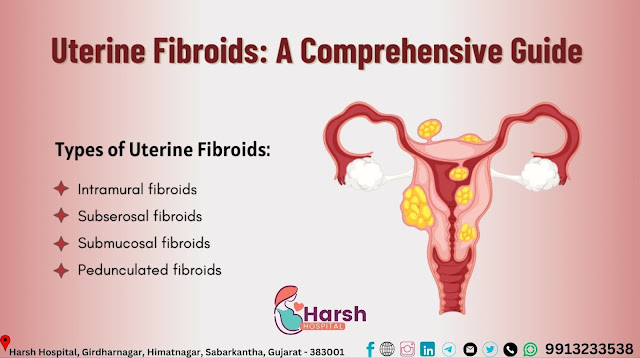Causes of Infertility – Understanding the Challenges
Infertility is a growing concern affecting millions of couples worldwide. It is defined as the inability to conceive after 12 months of regular, unprotected intercourse. Both men and women can experience infertility due to various underlying factors. Understanding the causes can help in seeking timely medical assistance and improving the chances of conception.
Causes of Infertility in Women
1. Ovulation Disorders
Ovulation problems are one of the leading causes of female infertility. Some common conditions include:
✔ Polycystic Ovary Syndrome (PCOS): Hormonal imbalance affecting ovulation.
✔ Premature Ovarian Insufficiency (POI): Early decline in ovarian function before the age of 40.
✔ Hypothalamic Dysfunction: Irregular or absent menstrual cycles due to stress or excessive exercise.
✔ Hyperprolactinemia: Excess production of prolactin, which disrupts ovulation.
2. Blocked Fallopian Tubes
Fallopian tubes play a crucial role in transporting the egg from the ovaries to the uterus. Blockage can occur due to:
✔ Pelvic Inflammatory Disease (PID): Infection leading to scarring of the tubes.
✔ Endometriosis: Tissue growth outside the uterus affecting tube function.
✔ Previous Surgeries: Scarring from abdominal or pelvic surgeries.
✔ Ectopic Pregnancy History: Damage from past abnormal pregnancies.
3. Uterine & Cervical Issues
✔ Uterine Fibroids: Non-cancerous growths affecting implantation.
✔ Polyps & Scar Tissue: Obstructing embryo attachment.
✔ Cervical Stenosis: Narrowing of the cervix, preventing sperm entry.
✔ Hostile Cervical Mucus: Thick mucus preventing sperm movement.
4. Age-Related Infertility
✔ Women’s fertility declines with age, especially after 35, due to lower egg quantity and quality.
5. Lifestyle & Environmental Factors
✔ Smoking, excessive alcohol intake, obesity, high-stress levels, and exposure to toxins can negatively impact female fertility.
Causes of Infertility in Men
1. Low Sperm Production & Poor Quality
✔ Oligospermia: Low sperm count.
✔ Asthenospermia: Poor sperm motility (movement).
✔ Teratospermia: Abnormal sperm shape, reducing fertilization ability.
✔ Azoospermia: Absence of sperm in semen.
2. Hormonal Imbalances
✔ Low Testosterone Levels: Affecting sperm production.
✔ Thyroid Disorders: Disrupting reproductive hormones.
✔ Pituitary Gland Dysfunction: Impacting hormone secretion for sperm production.
3. Structural Problems & Blockages
✔ Varicocele: Swelling of veins in the testicles affecting sperm production.
✔ Ejaculatory Duct Blockage: Preventing sperm release.
✔ Undescended Testicles: Poor sperm development due to incorrect positioning.
✔ Past Surgeries: Vasectomy or hernia repairs leading to blockages.
4. Lifestyle & Environmental Factors
✔ Smoking, excessive alcohol, drug use, obesity, and prolonged exposure to toxins or heat (saunas, laptops) can lower sperm quality.
How is Infertility Diagnosed?
At Harsh Hospital, Himatnagar, we provide comprehensive fertility evaluations for both men and women, including:
✔ Hormonal Blood Tests – To check reproductive hormone levels.
✔ Ultrasound & Imaging Tests – To detect uterine or ovarian abnormalities.
✔ Semen Analysis – To evaluate sperm count, motility, and shape.
✔ Hysterosalpingography (HSG) – To check for blocked fallopian tubes.
✔ Genetic Testing – If a hereditary factor is suspected.
Treatment & Solutions for Infertility
✔ Medications & Hormone Therapy – To induce ovulation and balance hormones.
✔ Intrauterine Insemination (IUI) – Placing sperm directly into the uterus.
✔ In Vitro Fertilization (IVF) – Fertilizing eggs in a lab and implanting embryos.
✔ Surgical Procedures – To remove blockages, fibroids, or endometriosis.
✔ Lifestyle Modifications – Diet, exercise, and stress management to enhance fertility.
When to Seek Medical Help?
🚨 If you’ve been trying to conceive for over 12 months (or 6 months if over 35 years old) without success, consult a specialist.
At Harsh Hospital, Himatnagar, we specialize in diagnosing and treating infertility with personalized care and advanced treatments.
📞 Book Your Consultation Today!
📍 Visit Us at Harsh Hospital, Himatnagar
🌐 Website: www.harshhospitals.com
💙 Your Parenthood Journey Begins Here! 💙
















